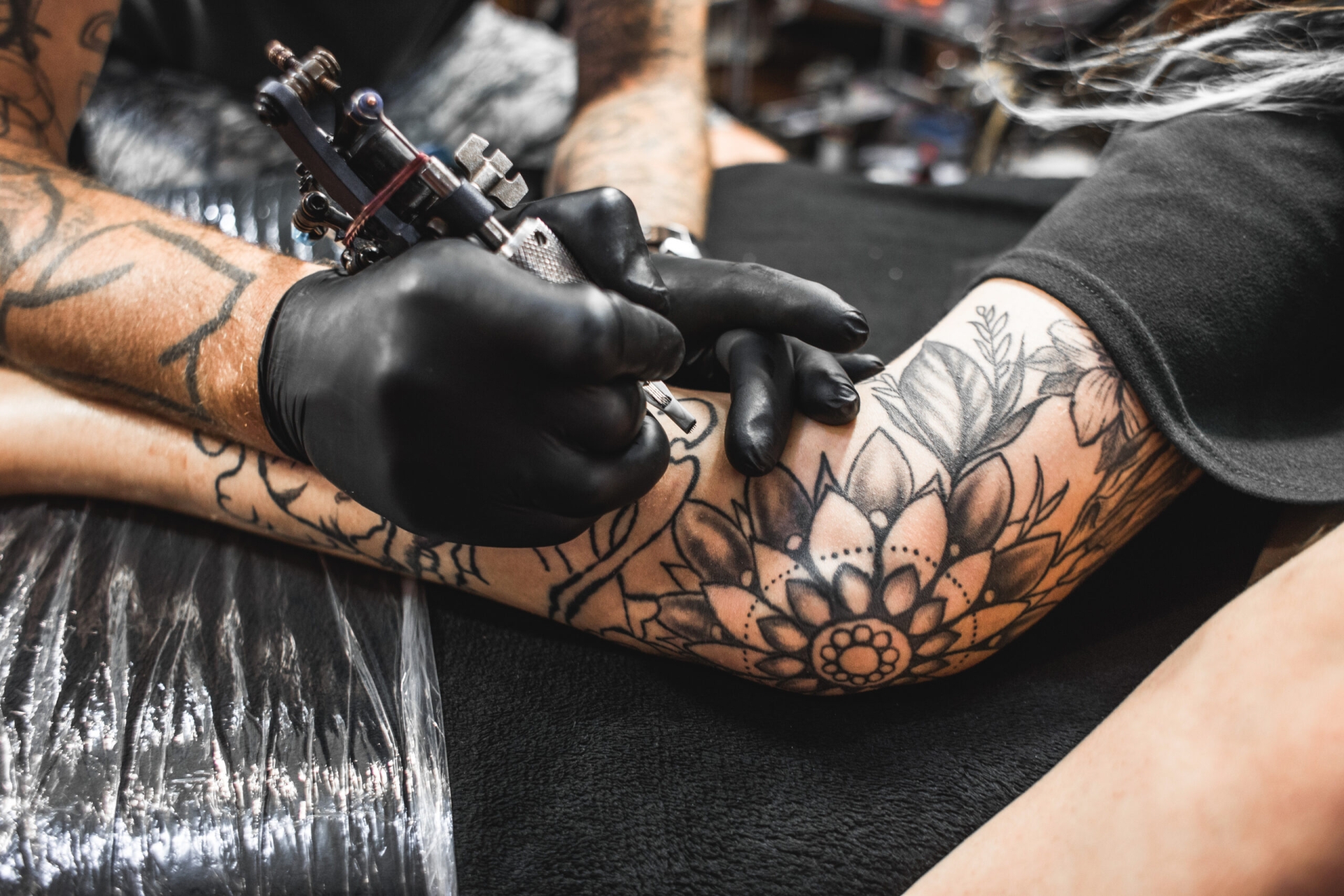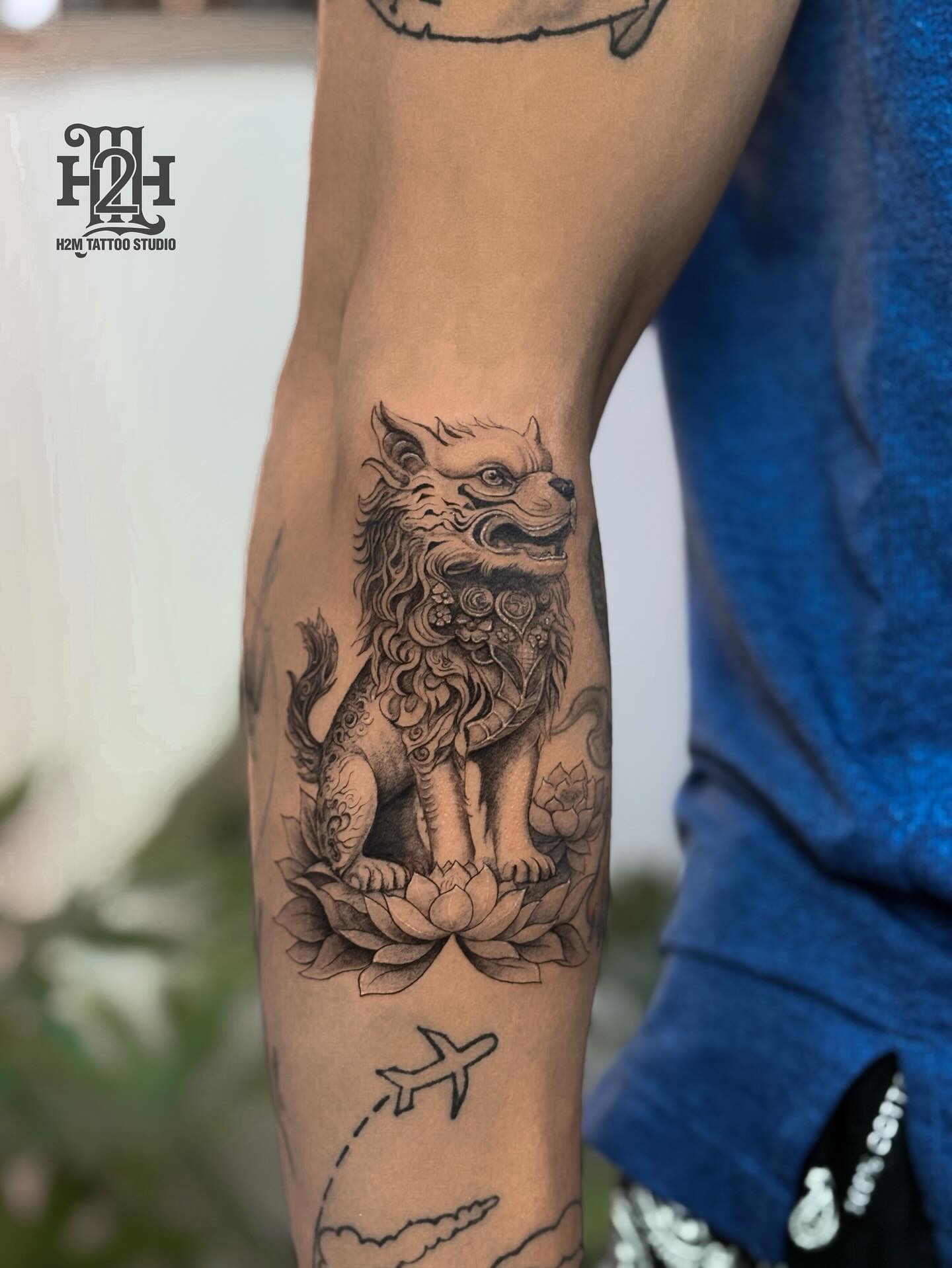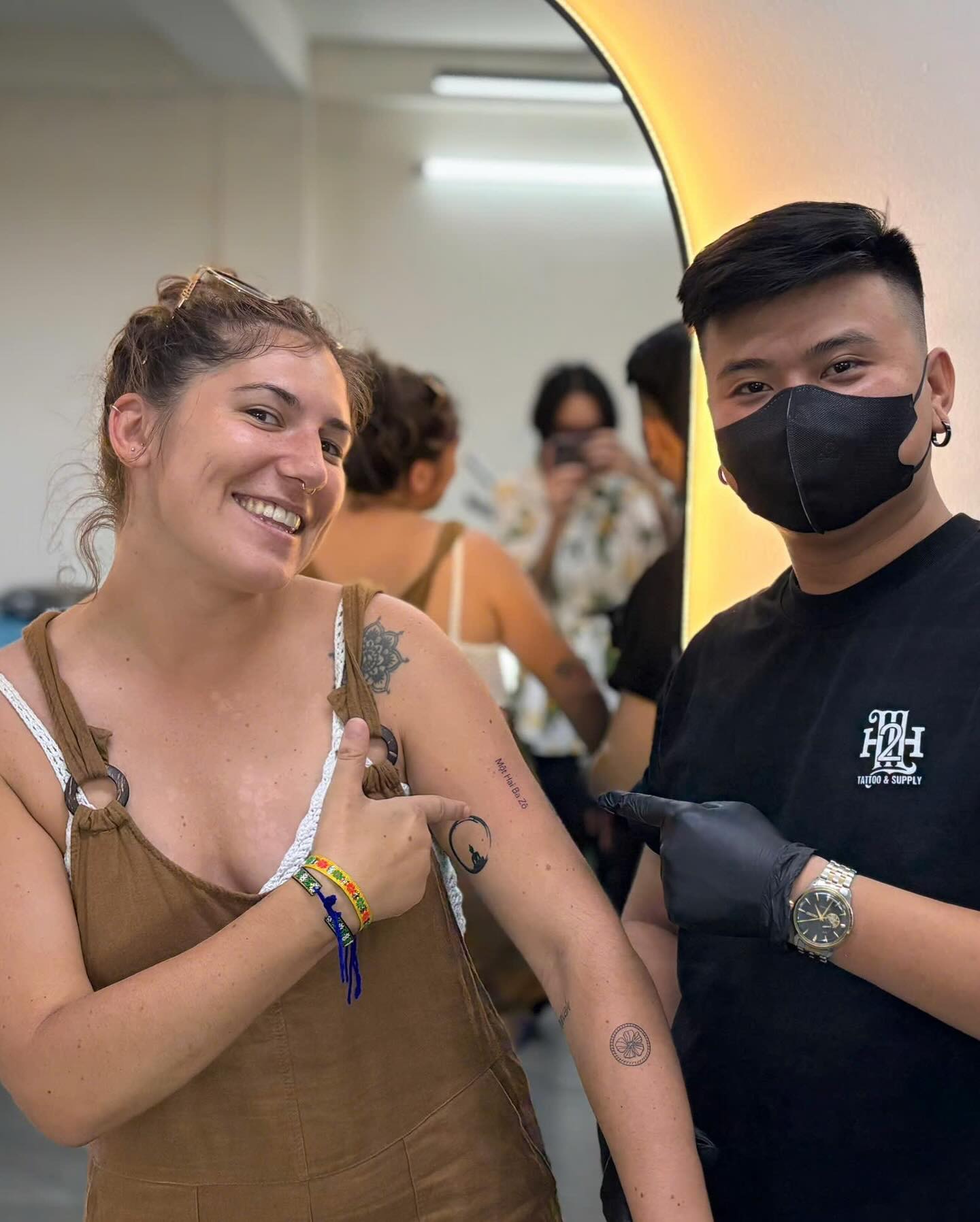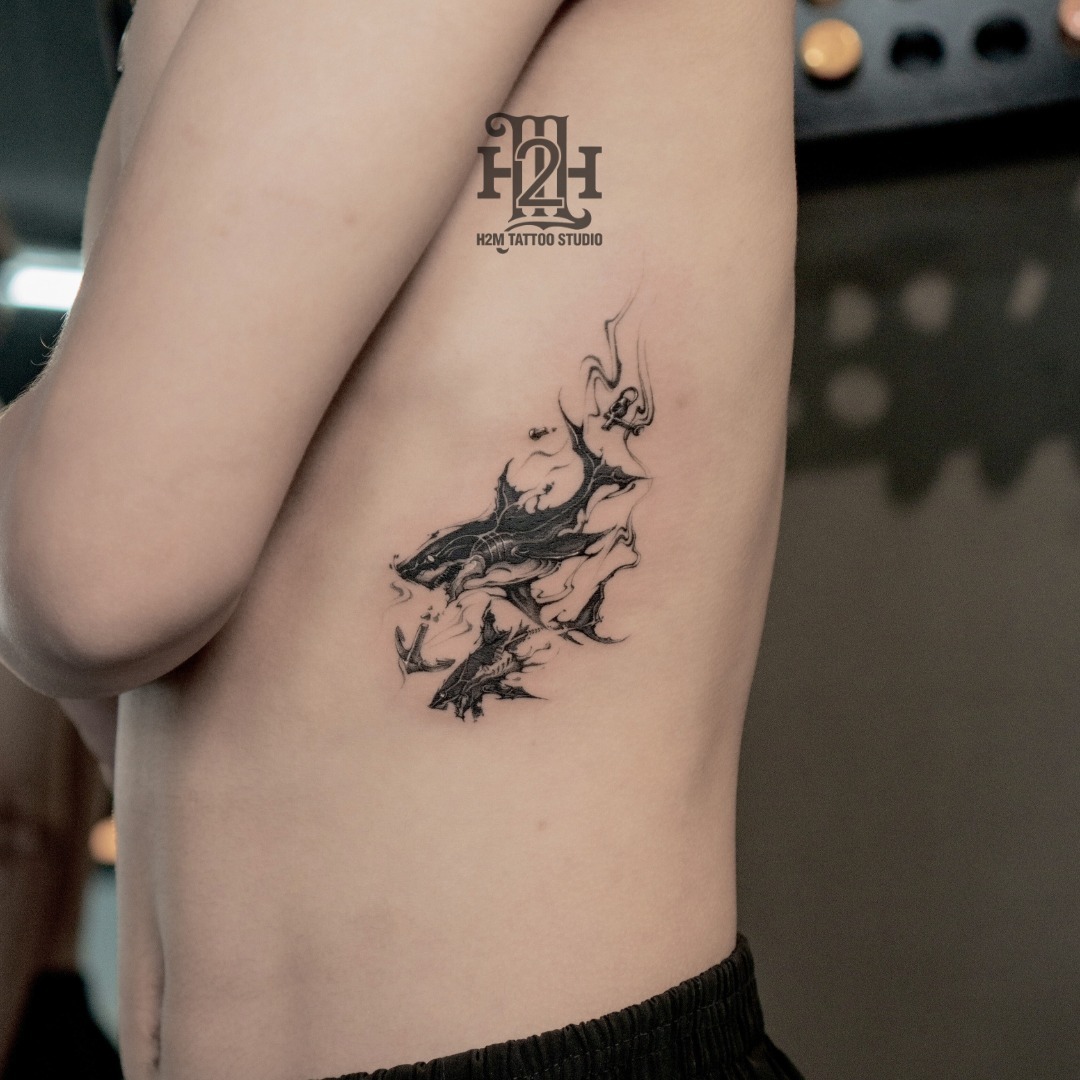Getting your first tattoo is an exciting milestone, but "How old do I have to be to get a tattoo?" doesn't have a simple universal answer. Tattoo age requirements vary dramatically worldwide, from complete prohibition for minors to allowing tattoos at 16 with parental consent. Whether you're a teenager eager for self-expression or a parent navigating your child's tattoo request, understanding these legal variations is crucial. At H2M Tattoo Studio, we believe informed decisions lead to better tattoo experiences. This comprehensive guide covers global age requirements, parental consent processes, health considerations, and practical advice for responsible tattoo choices, helping you navigate this important decision confidently and safely.
Legal Tattoo Age Requirements by Region
Understanding tattoo age laws requires examining regulations across different continents and countries, as these laws vary dramatically based on cultural attitudes, health policies, and legal traditions.
North America
United States: The tattoo age landscape in America is complex due to state-by-state variations. Most states set the minimum age at 18, but several allow tattoos for minors with specific conditions:
- States allowing 16-17 year olds with parental consent: Alaska, Arkansas, Connecticut, Georgia, Hawaii, Idaho, Iowa, Kansas, Kentucky, Louisiana, Maine, Massachusetts, Minnesota, Mississippi, Montana, Nevada, New Hampshire, North Carolina, North Dakota, Oklahoma, Rhode Island, South Carolina, Tennessee, Texas, Utah, Vermont, Washington, West Virginia, Wyoming
- States with 18+ requirement: Alabama, Arizona, California, Delaware, Florida, Illinois, Indiana, Maryland, Michigan, Missouri, Nebraska, New Jersey, New Mexico, New York, Ohio, Oregon, Pennsylvania, South Dakota, Virginia, Wisconsin
- Special cases: Some states like New York allow 17-year-olds with notarized parental consent and physician presence
Canada: Provincial regulations typically require individuals to be 18 or older. However, some provinces allow minors aged 16-17 with written parental consent and specific documentation requirements.

Europe
- European tattoo age laws show more consistency compared to North America, though variations still exist:
- United Kingdom: England, Wales, and Northern Ireland prohibit tattooing anyone under 18, with no exceptions for parental consent. Scotland follows similar regulations with strict enforcement.
- Germany: Minors can receive tattoos at 16 with parental consent and presence during the procedure. The tattoo artist must verify parental identity and document consent properly.
- France: The minimum age is 18, but 16-17 year olds can get tattoos with written parental authorization and medical consultation requirements.
- Netherlands: Allows tattoos from age 16 with parental consent, but many studios maintain internal policies requiring clients to be 18.
- Scandinavian Countries: Denmark, Sweden, and Norway generally require 18+ with limited exceptions for 16-17 year olds with comprehensive parental documentation.
Asia-Pacific
- Australia: Age requirements vary by state, but most require 18+ or 16+ with parental consent. New South Wales and Victoria have particularly strict documentation requirements for minors.
- New Zealand: The minimum age is 18, with very limited exceptions for cultural tattoos (ta moko) performed in traditional contexts.
- Japan: Most prefectures require 18+, though enforcement can vary. Cultural attitudes toward tattoos influence both legal requirements and studio policies.
- South Korea: Tattoos are technically only legal when performed by licensed medical practitioners, creating complex age requirement scenarios typically requiring 18+ regardless.
- Vietnam: The minimum age is 18, with no legal provisions for parental consent for minors. Vietnamese culture traditionally views tattoos with some conservatism, though younger generations and urban areas show increasing acceptance. Professional tattoo studios are regulated under health ministry guidelines, emphasizing safety standards and age verification.
>>>> LEARN MORE: What are the least painful places to get a tattoo? Your Complete Pain-Free Guide
Parental Consent: When and How It Applies
Parental consent serves as a bridge between protecting minors and recognizing family decision-making authority. Understanding when and how it applies is crucial for both teens and parents considering tattoos.
Situations Where Parental Consent Permits Underage Tattoos
Parental consent typically applies when:
- The minor is within the specified age range (usually 16-17 years old)
- Both parent and minor are present during the consultation and procedure
- Proper documentation is provided and verified by the tattoo studio
- The tattoo design and placement meet studio guidelines for minors
- Medical or religious exemptions apply in specific jurisdictions

Required Documentation and Verification Process
Reputable tattoo studios following legal parental consent procedures typically require:
Essential Documents:
- Valid government-issued ID for both parent and minor
- Birth certificate or legal guardianship papers proving parental relationship
- Notarized consent forms (requirements vary by location)
- Medical clearance in some jurisdictions
- Signed waivers acknowledging risks and permanence
Verification Process: Studios must verify parental identity through multiple forms of identification and may require waiting periods between consultation and procedure. Some regions mandate cooling-off periods of 24-48 hours to ensure decision certainty.
>>>> READ MORE: Numbing cream vs. no numbing cream for tattoos : 9 Essential Factors to Consider Before Your Next Session
Common Studio Policies Beyond Legal Requirements
Many professional tattoo studios implement policies stricter than legal minimums:
- Age restrictions: Some studios refuse clients under 18 regardless of parental consent
- Design limitations: Restrictions on tattoo size, placement, or content for minors
- Portfolio requirements: Requiring extensive consultation and design approval processes
- Artist discretion: Individual tattoo artists may decline minor clients based on professional judgment
- Insurance considerations: Studio insurance policies may influence age-related restrictions
These stricter policies often stem from liability concerns, professional ethics, and recognition that legal permission doesn't necessarily indicate readiness for permanent body modification.
Health and Safety Considerations for Tattoo Age Limits
Age restrictions for tattoos aren't arbitrary—they're grounded in legitimate health and safety concerns that affect both immediate wellbeing and long-term outcomes.
Physical Risks Associated with Tattooing Minors
- Immune System Development: Teenagers' immune systems are still developing, potentially affecting healing processes and infection resistance. While healthy teens can typically heal tattoos successfully, their immune responses may be less predictable than adults.
- Skin Changes: Adolescent skin continues changing through growth spurts, hormonal fluctuations, and physical development. Tattoos placed during periods of significant growth may distort or fade differently than those on fully mature skin.
- Pain Tolerance and Response: Younger individuals may have different pain processing and stress responses during tattooing procedures. This can affect both the tattooing process and healing outcomes.
- Healing Complications: Studies suggest that proper aftercare compliance can be challenging for younger clients, potentially increasing risks of infection, scarring, or poor healing outcomes.
Psychological Maturity and Decision Permanence
- Brain Development: Neuroscience research indicates that brain areas responsible for long-term decision making and impulse control continue developing until approximately age 25. This affects the ability to fully comprehend permanent consequences.
- Identity Formation: Teenagers are in crucial identity development phases. Tattoo designs chosen at 16 may not align with personal values, career goals, or aesthetic preferences at 25 or 35.
- Regret Potential: Industry data suggests higher tattoo regret rates among individuals who received their first tattoos before age 21. This correlates with changing life circumstances, evolving tastes, and career considerations.
- Social and Academic Pressure: Peer influence, social media trends, and temporary emotional states can drive tattoo decisions during adolescence, rather than thoughtful personal reflection.

Medical Conditions and Eligibility Factors
Certain health conditions particularly relevant to younger populations can affect tattoo eligibility:
- Blood Disorders: Conditions like hemophilia or clotting disorders require medical clearance regardless of age, but may be undiagnosed in younger individuals.
- Autoimmune Conditions: Developing autoimmune disorders can affect healing and may be triggered by tattoo procedures in susceptible individuals.
- Mental Health Considerations: Active depression, anxiety disorders, or body dysmorphia may influence tattoo decision-making and should be considered in consultation processes.
- Medication Interactions: Prescription medications common among teenagers (acne treatments, antidepressants, etc.) may affect healing or procedural safety.
Medical professionals increasingly recommend comprehensive health assessments before tattooing younger clients, going beyond basic age verification to ensure overall readiness for the procedure.
>>>> LEARN MORE: Can you get a tattoo while pregnant? 9 Critical Safety Considerations Every Expecting Mother Should Know
Consequences of Underage Tattooing
Understanding the potential consequences of violating tattoo age laws helps both young people and tattoo artists make informed decisions about legal compliance and professional practices.
Legal Penalties for Artists and Clients
For Tattoo Artists: Professional consequences for tattooing minors illegally can be severe and career-ending. Artists may face criminal charges ranging from misdemeanor violations to more serious offenses depending on jurisdiction and circumstances. License revocation or suspension commonly occurs, effectively ending professional tattooing careers. Fines can range from hundreds to thousands of dollars, while civil liability exposure includes potential lawsuits from parents or minors seeking damages.
For Minors and Parents: While minors typically face fewer direct legal consequences, parents may encounter child endangerment charges in extreme cases. Some jurisdictions classify unauthorized minor tattoos as forms of abuse or neglect, potentially involving child protective services.
Real-World Case Examples
-
Case Study 1 - Pennsylvania (2019): A tattoo artist received a $2,500 fine and six-month license suspension after tattooing a 15-year-old without parental consent. The case involved forged parental documents, leading to additional fraud charges.
-
Case Study 2 - California (2020): A studio owner faced criminal charges and civil lawsuits after multiple incidents of tattooing minors. The business closed permanently, and the owner was banned from the tattoo industry.
-
Case Study 3 - Texas (2021): Parents successfully sued a tattoo artist for $15,000 after their 16-year-old received a tattoo without proper consent documentation, citing emotional distress and removal costs.
These cases illustrate that violations aren't just regulatory infractions—they can result in serious legal, financial, and professional consequences.
Beyond Legal: Social and Professional Impacts
- Career Limitations: Visible tattoos can impact employment opportunities in certain industries, particularly affecting young people entering the job market without full awareness of professional expectations.
- Educational Restrictions: Some educational institutions, military academies, or specialized programs maintain appearance standards that could exclude students with visible tattoos.
- Insurance and Medical Implications: Tattoo-related complications may affect health insurance coverage or medical treatment options, particularly relevant for young people establishing independent healthcare relationships.
- Relationship and Family Stress: Unauthorized tattoos often create lasting family conflicts, trust issues, and relationship strain that extends far beyond the initial incident.
- Financial Burden: Tattoo removal costs can exceed $10,000 for larger pieces, creating significant financial stress for young adults or families dealing with regret situations.
>>>> READ NOW: what is a tattoo ? A Story Etched in Ink
Guidance for Teens and Parents: Making Informed Decisions
Navigating tattoo decisions requires open communication, thorough research, and careful consideration of long-term implications. Here's practical guidance for families approaching this important conversation.
Communication Advice for Families
For Parents: Start conversations about tattoos before they become immediate decisions. Listen to your teenager's motivations without immediate judgment—understanding their reasoning helps guide productive discussions. Share your concerns clearly while acknowledging their desire for self-expression. Discuss family values, professional considerations, and long-term implications honestly.
Consider compromise solutions like allowing temporary tattoos, henna designs, or agreeing to revisit permanent tattoos when they reach legal age. Establish clear family guidelines about body modifications that respect both parental authority and adolescent autonomy within reasonable bounds.
For Teenagers: Approach tattoo conversations with maturity and preparation. Research your desired design thoroughly, considering why it's meaningful and whether it will remain significant in five or ten years. Be prepared to discuss placement, size, and long-term implications with parents.
Demonstrate responsibility through other decisions to build trust for future conversations. Consider starting with small, discrete designs if parents are open to compromise. Respect family decisions while continuing productive dialogue about self-expression.

Exploring Alternatives: Temporary Options and Their Benefits
High-Quality Temporary Tattoos: Modern temporary tattoos can last 1-2 weeks and provide realistic experiences of living with body art. They allow experimentation with designs, placements, and styles without permanent commitment.
Henna and Jagua Tattoos: Natural plant-based temporary tattoos last 1-3 weeks and offer cultural significance while testing tattoo experiences. These options provide meaningful artistic expression with temporary commitment.
Semi-Permanent Options: Some newer technologies offer 1-2 year temporary tattoos, providing longer-term experiences without lifetime commitments. While still emerging, these options may bridge the gap between temporary and permanent choices.
Cultural and Social Aspects of Tattoo Age
Understanding how different cultures approach tattoo age requirements provides valuable context for personal decision-making and highlights the diverse perspectives surrounding body modification and youth autonomy.
Cultural Differences in Tattoo Age Perception
Indigenous and Traditional Cultures: Many indigenous cultures have practiced tattooing for centuries with different age markers than modern legal frameworks. In Polynesian cultures, traditional tattoos (tatau) often mark coming-of-age ceremonies, sometimes occurring in mid-teens within cultural contexts. Māori ta moko traditionally begins when individuals demonstrate cultural readiness rather than reaching specific chronological ages.
Religious and Spiritual Contexts: Some cultures integrate tattoos into religious or spiritual practices with age requirements based on spiritual maturity rather than legal definitions. Buddhist and Hindu traditions may include sacred tattoos (sak yant) with ceremonial timing that differs from secular age restrictions.
Modern Cultural Evolution: Western attitudes toward tattoo age continue evolving, with some cultures becoming more accepting of younger tattoo recipients while others maintain conservative approaches. Scandinavian countries often emphasize individual autonomy balanced with protection, while Mediterranean cultures may prioritize family decision-making in age-related choices.
Social Stigma and Acceptance Trends
Generational Perspectives: Younger generations generally show higher acceptance of tattoos across age groups, while older generations may maintain concerns about professional and social implications of early tattooing decisions.
Regional Variations: Urban areas typically demonstrate greater tattoo acceptance for younger individuals compared to rural or conservative regions where traditional age expectations persist.
Professional Evolution: Industries previously opposed to visible tattoos increasingly accept professional appearance diversity, reducing long-term career concerns for individuals receiving tattoos during teenage years.
Social Media Influence: Digital culture has accelerated tattoo normalization while also creating pressure for young people to make permanent decisions based on temporary trends or online validation.
Expert Perspectives and Professional Insights
Industry professionals and medical experts provide valuable perspectives on tattoo age requirements based on years of experience working with clients across different age groups.
Tattoo Artist Perspectives
Professional Responsibility: Experienced tattoo artists consistently emphasize that age verification represents just one aspect of client readiness assessment. Sarah Mitchell, a licensed artist with 15 years of experience, explains: "Legal age doesn't automatically mean someone is ready for a tattoo. I look for signs of thoughtful decision-making, realistic expectations, and genuine personal motivation rather than peer pressure or impulse."
Many artists describe developing intuition about client readiness that goes beyond checking identification. They report that some 18-year-olds demonstrate clear readiness while some older clients show concerning decision-making patterns.
Industry Standards Evolution: Professional tattoo artists increasingly advocate for comprehensive consultation processes regardless of client age, including design discussion periods, aftercare education, and frank conversations about permanence and potential regret.
Medical Professional Insights
Dermatological Considerations: Dr. Amanda Rodriguez, a dermatologist specializing in tattoo-related care, notes that "adolescent skin continues changing through growth spurts and hormonal fluctuations. While this doesn't prevent successful tattooing, it does influence healing patterns and long-term appearance outcomes."
Medical professionals emphasize that proper healing requires maturity and consistency in aftercare practices, which can be challenging for younger individuals balancing school, activities, and social pressures.
Psychological Readiness Factors: Mental health professionals working with adolescents highlight that brain development continues into the mid-twenties, particularly areas responsible for long-term consequence evaluation and impulse control. This doesn't necessarily disqualify teenage tattooing but supports comprehensive decision-making processes.
The answer to "How old do I have to be to get a tattoo?" varies by location—most countries require 18 years old, while some allow 16-17 year olds with parental consent and proper documentation. At H2M Tattoo Studio, we understand that age requirements represent just the beginning of making informed decisions about permanent body modification. True readiness encompasses physical health, psychological maturity, family dynamics, and long-term life planning beyond legal minimums. Whether you're a teenager excited about your first tattoo or a parent navigating your child's body modification interests, the best decisions combine legal compliance with thoughtful reflection, open family communication, and professional guidance from experienced artists and healthcare providers.
>>>> NOTE NOW:

